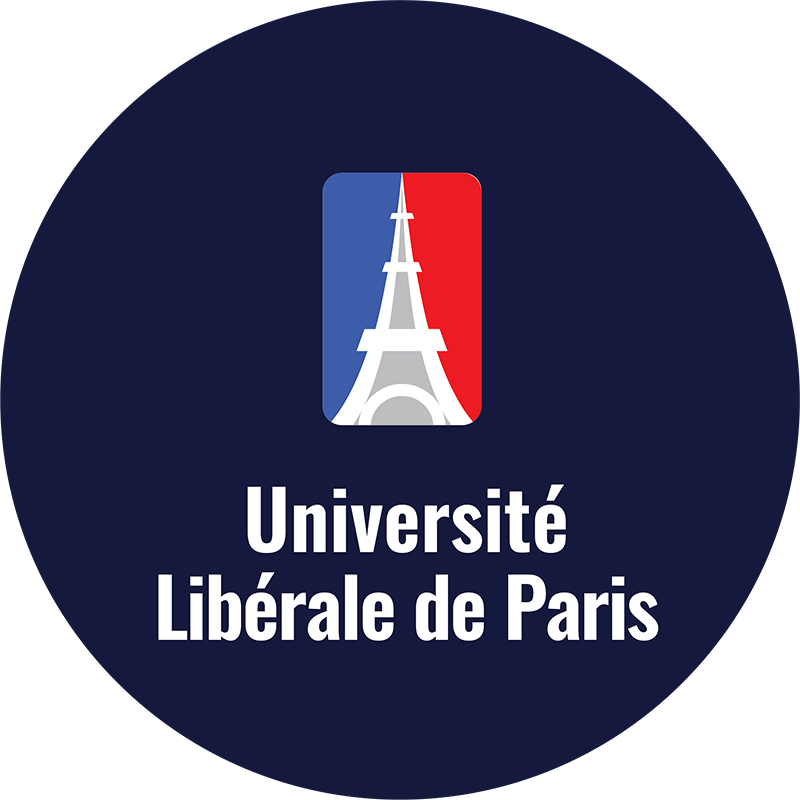
Micro Master Degree in Strategic Financial Management
Micro Master Degree in Strategic Financial Management
CÔNG NHẬN NĂNG LỰC LEVEL 7 THEO KHUNG NĂNG LỰC CHÂU ÂU EQF
Mục đích của chương trình Micro Master Degree in Strategic Financial Management (Level 7 EQF) nhằm phát triển năng lực của học viên trong việc áp dụng các nguyên lý tài chính liên quan đến quản trị trong bối cảnh tổ chức, bao gồm các kỹ thuật phân tích và lý thuyết/mô hình kế toán quản trị, đánh giá các quy trình ngân sách, đề xuất các nguồn kinh phí và thẩm định các lựa chọn đầu tư.
Micro Master Degree được công nhận tương đương với Level 7 EQF (Thạc sĩ) theo khung năng lực Châu Âu. Học viên sau khi tốt nghiệp có thể tiếp cận nhanh chóng vào môi trường công việc; và có thể chuyển 20 tín chỉ và toàn bộ học phí sang các chương trình Thạc sĩ của Paris-U.
Programs in details
Learning Outcomes:
1. Be able to apply the tools and techniques of cost accounting.
1.1 Critically analyse the concepts, features and importance of cost accounting in an organisation.
1.2 Apply tools of costing design and costing systems to an organisation.
1.3 Recommend improvements to the costing and pricing systems of an organisation.
2. Be able to critically analyse the financial performance of businesses.
2.1 Analyse financial statements to assess the financial position of an organisation.
2.2 Recommend organisational decisions based on evaluation of financial statements using financial ratios.
2.3 Propose managerial recommendations on the strategic portfolio of an organisation based on financial analysis.
3. Be able to evaluate the budgetary processes of organisations
3.1 Evaluate budgetary targets for an organisation.
3.2 Develop a master budget for an organisation.
3.3 Critically evaluate budget and budgetary processes in an organisation.
4. Be able to recommend effective long term and short-term sources of funding.
4.1 Assess the need for short term working capital and long- term funds for an organisation.
4.2 Appraise appropriate sources of short term and funds for an organisation.
4.3 Justify choices of sources of funds using a range of criteria related to cost and risk.
5. Be able to critically appraise investment options.
5.1 Apply financial appraisal methods to analyse competing investment projects in different kinds of organisations.
5.2 Justify strategic investment decision for an organisation using relevant financial information.
5.3 Critically analyse strategic investment decisions using information.
Introduction to financial and managerial accounting its purposes and financial strategy formulation. Cost systems:
Course Coverage:
- Cost classifications in terms of object; function, product/service and behaviour; opportunity cost, recording and analysing costs; job costing; batch costing; process costing; contract costing; standard costing; variance calculations; variance analysis and management by exception
Costing methods:
Course Coverage:
- Absorption, marginal costing, activity based costing (ABC); use in calculating costs and pricing policy and their relationship to cost controls and pricing.
Cost control of systems:
Course Coverage:
- Cost centre; profit centres; investment centres; accountable management; planning and control methods.
Financial statements:
Course Coverage:
- Estimates and assumptions relating to the profit and loss account; balance sheet and cash flow statement.
Financial ratios analysis, interpretation, decisions and limitations:
Course Coverage:
- Employment of financial ratios internally and externally; financial profiles of organisations; calculation of key ratios reflecting business liquidity; efficiency and profitability.
Budgets:
Course Coverage:
- Types; flexible and fixed budgets; zero-based budgeting, budgeting process from subsidiary/functional to master budget; relationship of budget to cost and quality control, resource utilisation and profitability.
Budgets monitoring and evaluations
Course Coverage:
- Budgeted and actual figures, accounting for and investigating different kind of variances in budgetary controls; corrective action; human behavioural issues relating to budgeting.
Sources of financial resources; types of funds:
Course Coverage:
- Short term and long terms, sourcing funds internally and externally; venture capitalists, leverages; risk, cost and control issues with types of funding; techniques of selecting appropriate sources of funds for different projects – comparison of costs, risk and controls.
Managing working capitals and appraisal of investment options
Course Coverage:
Capital and revenue expenditure, risk, cost and controls; cash flow statements; time value of money; different methods of project appraisal like: accounting rate of return; payback period and cash flows; discounted cash flow – net present value and internal rate of return; and allowance for inflation in money and real rates of discount, taxation and project appraisal.
Impacts of information and communication technology; global financial management; using excel sheets in financial analysis, MIS and financial resource plaining and control.
Indicative reading list
Core texts:
- Atrill, P. and McLaney, E. (2006) Accounting & Finance for Non-specialists. (5th edition) Harlow: FT Prentice Hall.
- Chaffey, D., Bocij, P., Greasley, A. and Hickie, S. (2006) Business information systems: technology, development and management for the e business, (3rd edition), Harlow: Financial Times Prentice Hall/Pearson Education.
Additional reading:
- Atrill, P. (2011) Financial management for decision makers. Harlow: FT Prentice Hall.
- Atrill, P. and McLaney, E. (2006) Management Accounting for Decision Makers. Harlow: Prentice Hall.
- Berk, J. and DeMarzo, P. (2007) Corporate Finance. London: Pearson.
- Brealey, R., Myers, S. and Marcus, A. (2007) Fundamentals of Corporate Finance. New York: McGraw Hill Irwin. • Cox, D. and Fardon, M. (1997) Management of Finance. London: Osborne Books.
- Drury, C. (2009) Management Accounting for Business. 4thEdition. London: Cengage Learning EMEA.
- Lumby, S. and Jones, C. (2000) The Fundamentals of Investment Appraisal. London: Thomson Learning.
- Laudon, K. and Laudon J. (2007) Management Information Systems – Managing the Digital Firm. 10th Edition. Harlow: Prentice Hall. • Monden, Y. (1995) Cost Reduction Systems: Target Costing and Kaizen Costing. New York, Productivity Press.
- Marsh, C. (2009) Mastering Financial Management. Harlow: FT Prentice Hall.
- Van Horne, J. and Wachewicz, J. (2009) Fundamentals of Financial Management. Harlow: FT Prentice Hall
- White, G. I., Sondhi, A. C. and Fried, D. (2003) The Analysis and Use of Financial Statements. 3rd Edition. Hampshire: John Wiley and Sons.
Other indicative reading:
- Peer reviewed academic journals as Financial Management, Journal of International Financial Management & Accounting, International Journal of Financial Management and related.
- Online resources, corporate industry reports, the Institute of Certified Financial Managers publications and relevant.
Journals/newspapers:
- The Financial Times;
- Management Accounting Quarterly;
- Financial Management;
- International Journal of Financial Management;
- Journal of International Financial Management & Accounting;
- Management Today;
- Strategic Finance;
Websites:
- Most of the professional accounting bodies in the UK have their own websites (CIMA, ICA, CIPFA, AAT);
- www.aat.co.uk Association of Accounting Technicians;
- www.cimaglobal.com Chartered Institute of Management Accountants;
- www.cipfa.org.uk Chartered Institute of Public Finance and Accountancy;
- www.companies-house.gov.uk Companies House.
Để đăng kí tham gia khóa học, học viên cần đạt 1 trong những điều kiện sau:
- Đã có bằng Cử nhân các chuyên ngành từ các đại học được kiểm định hoặc bằng Level 6 theo hệ EQF hoặc tương đương.
- Với ứng viên có bằng đại học nội địa chưa có kiểm định quốc tế sẽ phải dựa vào chính sách chương trình APEL.Q của Université Libérale de Paris (Paris-U) để tuyển sinh.
- Trên 21 tuổi
Lưu ý: Université Libérale de Paris (Paris-U) bảo lưu quyền quyết định tiếp nhận hay không tiếp nhận sau khi bộ phận tuyển sinh đã xem xét kỹ lưỡng hồ sơ của từng ứng viên để đảm bảo ứng viên có thể đạt được nhiều lợi ích và kiến thức khi tham gia chương trình. Paris-U không chấp nhận bằng cấp đầu vào từ các trường đại học giả mạo và các trường đại học thuộc nhóm Diploma Mills.
Yêu cầu tiếng Anh
Ứng viên không đến từ những quốc gia sử dụng tiếng Anh là ngôn ngữ chính phải cung cấp chứng chỉ về trình độ tiếng Anh.
- Tiếng Anh đạt tối thiểu khung năng lực CEFR (Common European Framework of Reference) ở mức B2 hoặc tương đương.
- TOEFL tối thiểu 101 điểm hoặc IELTS 6.5; Nói và viết phải đạt từ 6.5 hoặc tương đương.
Sau khi tốt nghiệp, học viên nhận được:
- Micro Master Degree in Strategic Financial Management từ Université Libérale de Paris bản điện tử.
- Micro Master Degree in Strategic Financial Management từ Université Libérale de Paris bản cứng chuyển về nhà.
- Giấy công nhận Accreditation of Prior Experimental Learning for Qualification (APELQ) từ Paris-U với số tín chỉ và học phí có thể tích luỹ.
- Xác nhận chuyên gia Level 7 Certified in Strategic Financial Management từ Paris-U
Vì chương trình được kiểm định và công nhận nên học viên có thể dễ dàng sử dụng chứng chỉ trong các môi trường làm việc và có nhiều cơ hội thăng tiến trong sự nghiệp. Trong trường hợp muốn học lấy bằng đại học, học viên có thể chuyển đổi toàn bộ tín chỉ và toàn bộ học phí khi tham gia chương trình tại Paris-U.
Micro Master Degree đạt cấp độ Level 7 theo khung năng lực Châu Âu EQF tương ứng với:
- Level 7 certificate of Regulated Qualification Framework (RQF) of UK
- Level 10 certificate of Scottish Credit and Qualifications Framework (SCQF)
- Level 7 certificate of Credit and Qualifications Framework (CQFW)
- Level 7 certificate of European Qualifications Framework (EQF)
- Level 9 certificates of the Australian Qualifications Framework (AQF)
- Level 7 certificate of ASEAN Qualifications Reference Framework (AQRF)
- Level 9 certificate of the African Continental Qualifications Framework (ACQF)
Học viên có thể chuyển tất cả tín chỉ và toàn bộ học phí đã đóng khi chuyển tiếp sang các chương trình của Paris-U nếu muốn lấy bằng thạc sĩ chính thức.
Số tín chỉ có thể tích luỹ:
Học viên được tích luỹ được 20 credits khi tham gia chương trình Master of Business Administration (MBA). Vui lòng tham khảo thêm về chính sách tích luỹ tín chỉ TẠI ĐÂY.
Chuyển học phí đã đóng:
Khi tham gia chương trình MBA, toàn bộ phí đã đóng cho chương trình Micro Degree sẽ được giảm tương ứng. Thông tin chi tiết vui lòng xem TẠI ĐÂY.
APEL.Q – Accreditation of Prior Experiential Learning for Qualifications là quy trình công nhận năng lực (APEL) để cấp bằng (Q- Qualification) thông qua việc thẩm định và đánh giá quá trình học tập (chính thức, không chính thức, đào tạo tại doanh nghiệp) và từ kinh nghiệm làm việc. APEL.Q được triển khai rộng rãi tại Châu Âu và gần đây, tại Châu Á, một số nước đã công nhận APEL.Q như quy trình chính thức, được công nhận cấp quốc gia và được ưu tiên phát triển như một chính sách hiệu quả phục vụ cho giáo dục khai phóng, dịch chuyển lao động và học tập suốt đời.
APEL.Q cho phép các cá nhân có chuyên môn nghiệp vụ, có kinh nghiệm làm việc nhưng không có bằng cấp (academic degree) có thể chuyển đổi kinh nghiệm để lấy bằng. APEL.Q được đánh giá là quy trình chặt chẽ, minh bạch, công bằng, chính xác và tiết kiệm.
Với các chương trình đào tạo truyền thống, việc cấp bằng sẽ dựa vào năng lực có được từ chương trình đào tạo. APEL.Q áp dụng quy trình ngược so với đào tạo truyền thống, dùng chính năng lực theo từng vị trí (position) và cấp độ (level) do chính phủ công bố để đánh giá, từ đó công nhận và cấp văn bằng. Văn bằng sẽ được cấp từ các tổ chức nghề nghiệp và/hoặc trường đại học nếu tổ chức nghề nghiệp và/hoặc trường đại học đó công nhận quy trình đánh giá.
APEL.Q của Viện hàn lâm khoa học London là chương trình triển khai độc lập đầu tiên trên thế giới với các tiêu chí đánh giá năng lực được công bố và công nhận của chính phủ Anh Quốc và Đại học Khai phóng Paris – Université Libérale de Paris (Paris-U). Xem thêm TẠI ĐÂY
- Chọn chương trình phù hợp theo nhu cầu của bạn. Để đảm bảo lợi ích và thuận lợi tối đa, hãy xem trước chương trình mà sau này có thể chuyển tín chỉ và học phí.
- Email nguyện Vọng học tập về địa chỉ support@paris-u.fr.
- Paris-U sẽ gửi bạn thông tin chi tiết chương trình, bạn tiến hành theo quy trình được hướng dẫn.
- Université Libérale de Paris xuất Letter of Acceptant (LOA). Bạn tiến hành các bước đăng ký theo hướng dẫn và đóng học phí.
- Université Libérale de Paris sẽ gửi đến bạn tài khoản đăng nhập vào hệ thống e-learning và các tài liệu hướng dẫn đi kèm.
- Bạn lúc này là sinh viên chính thức của Paris-U với chương trình Micro Degree.
Micro Degree là chương trình triển khai theo mô hình trực tuyến. Bạn có thể học mọi lúc mọi nơi. Bài kiểm tra cuối khoá được upload lên hệ thống làm căn cứ để quyết định tốt nghiệp. Trong trường hợp học viên không nộp bài đúng hạn sẽ xem như rớt môn và bị huỷ bỏ tư cách sinh viên và các quyền lợi đi kèm. Chương trình Micro-Degree không áp dụng chính sách Resit.
- Chương trình Micro-Degree bên cạnh do Paris-U triển khai trực tiếp, thì những chương trình không phải do Paris-U triển khai chỉ chấp nhận chuyển tín chỉ khi đã được Paris-U công nhận bằng văn bản.
- Để có thể chuyển được tín chỉ và học phí, học viên phải gửi toàn bộ tài liệu nhận được sau khi tốt nghiệp chương trình Micro Degree. Paris-U sẽ không tiếp nhận việc chuyển điểm và học phí nếu ứng viên không cung cấp đầy đủ.
- Học viên chỉ được chuyển đổi tín chỉ và chuyển học phí với chương trình tương ứng, bao gồm tương ứng về cấp độ (Level) và tương ứng về chuyên ngành.
- Chương trình chuyển đổi tín chỉ và học phí chỉ áp dụng trong thời hạn 2 năm kể từ ngày tốt nghiệp Micro-Degree. Sau thời gian này, Micro-Degree đã học sẽ không còn hiệu lực chuyển đổi tín chỉ và học phí.
- Việc chuyển đổi tín chỉ giúp giảm bớt số tín chỉ cần phải hoàn thành không đồng nghĩa với rút ngắn tổng thời gian của chương trình. Học viên tốt nghiệp cùng với những học viên thông thường khác.


Tuition fees
Tuition policies are in keeping with the provisions of the Paris-U policy and subject to change without notice. In some case, Paris-U offer variety of Scholarships for International Students.
Université Libéral de Paris
Université Libéral de Paris (Paris-U) offers higher education programmes in English only and that are different from the French National Curricula and Programmes leading to French Government accredited university qualifications, which falls under the French Public Higher Education sector.
Université Libérale de Paris
1 rue de Stockholm 75008 Paris, France
Phone: +33758491227
Email: support@paris-u.fr
Một Đại học của the European Education Holdings
Wertachstrasse 21 • 86153 Augsburg
Phone: +15908605264 • Email: support@education.holdings
Về Paris-U
Programs
Thành viên Paris-U
Hệ thống Paris-U
Chính sách Paris-U
Chính sách và Điều khoản

